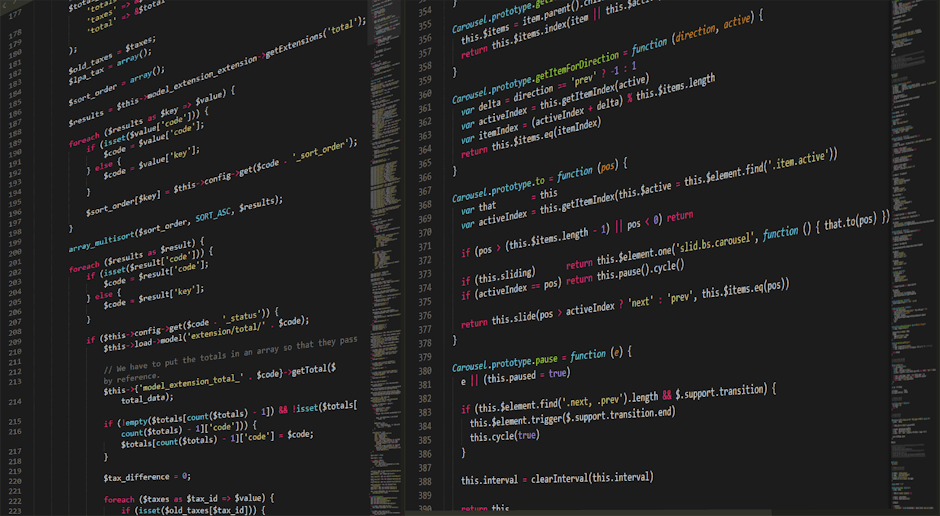
The marketing landscape in 2025 is being reshaped at an unprecedented pace, primarily driven by the relentless advancements in artificial intelligence (AI). What was once considered futuristic is now becoming a standard practice, offering marketers powerful tools to understand their audience, personalize experiences, and optimize campaigns with remarkable precision. Embracing “Marketing and AI” is no longer an option but a necessity for businesses aiming to thrive in a competitive digital environment.
Understanding the AI Revolution in Marketing
AI is transforming marketing across various domains, from content creation and customer service to data analytics and advertising. Its ability to process vast amounts of data quickly and accurately provides marketers with insights that were previously unattainable. This allows for more informed decision-making and highly targeted campaigns, leading to improved ROI and customer satisfaction.
Key Areas Where AI Impacts Marketing
- Personalized Customer Experiences: AI enables marketers to deliver highly personalized content and offers based on individual customer preferences and behaviors.
- Predictive Analytics: AI algorithms can analyze historical data to predict future trends and customer behavior, allowing for proactive marketing strategies.
- Automated Marketing Campaigns: AI-powered tools automate repetitive tasks, such as email marketing and social media posting, freeing up marketers to focus on strategic initiatives.
- AI-Driven Content Creation: AI can assist in generating various types of content, including blog posts, social media updates, and even video scripts, accelerating the content creation process.
- Enhanced SEO Strategies: AI helps optimize websites and content for search engines by analyzing keywords, backlinks, and user behavior.
Practical Applications of AI in 2025 Marketing
In 2025, “Marketing and AI” will be deeply integrated into day-to-day marketing activities. Marketers will leverage AI tools to automate tasks, personalize customer interactions, and gain deeper insights into their target audience. Here are some practical applications:
AI-Powered Personalized Marketing
Personalization is no longer a luxury but an expectation. AI empowers marketers to deliver truly individualized experiences. Consider a customer browsing an e-commerce website; AI algorithms analyze their browsing history, purchase patterns, and demographic data to recommend products tailored to their specific interests. This level of personalization significantly increases the likelihood of conversion and fosters customer loyalty.
- Dynamic Content Optimization: Websites that adapt content in real-time based on user behavior.
- Personalized Email Marketing: Tailored email campaigns with product recommendations and offers specific to each subscriber.
- AI-Driven Chatbots: Providing instant customer support and personalized recommendations through AI-powered chatbots.
Predictive Analytics for Proactive Marketing
Instead of reacting to market trends, marketers can now anticipate them using AI-powered predictive analytics. These tools analyze historical data to forecast future customer behavior, identify emerging trends, and optimize marketing campaigns accordingly. For instance, a retail company can use predictive analytics to forecast demand for specific products during the holiday season and adjust inventory levels and marketing efforts to maximize sales.
- Sales Forecasting: Predicting future sales based on historical data and market trends.
- Customer Churn Prediction: Identifying customers who are likely to churn and implementing proactive retention strategies.
- Lead Scoring: Prioritizing leads based on their likelihood to convert into customers.
AI-Automated Content Creation and Optimization
Content creation can be time-consuming and resource-intensive. AI tools are now capable of assisting with various aspects of content creation, from generating ideas to writing full articles. These tools can also optimize existing content for SEO, ensuring that it ranks higher in search engine results. Imagine a marketing team using AI to generate variations of ad copy for A/B testing, significantly accelerating the optimization process and improving ad performance.
- AI-Powered Content Generators: Creating blog posts, social media updates, and ad copy with AI assistance.
- SEO Optimization: Optimizing content for search engines using AI-powered keyword research and analysis.
- Content Repurposing: Automatically repurposing existing content into different formats, such as videos and infographics.
AI and the Future of SEO
“Marketing and AI” are revolutionizing SEO in profound ways. AI algorithms are becoming increasingly sophisticated at understanding search intent and ranking websites based on relevance and user experience. Marketers need to adapt their SEO strategies to align with these changes.
For example, Google’s RankBrain, an AI algorithm, analyzes search queries to understand user intent and provide more relevant search results. This means that keyword stuffing and other outdated SEO tactics are no longer effective. Instead, marketers need to focus on creating high-quality, informative content that addresses the needs of their target audience. To stay ahead of the curve, many companies are partnering with experts. A strong SEO Agency in Miami can provide invaluable assistance navigating these changes and ensuring optimal online visibility.
- Semantic SEO: Focusing on the meaning and context of content to improve search engine rankings.
- Voice Search Optimization: Optimizing content for voice search queries, which are becoming increasingly common.
- AI-Powered Keyword Research: Using AI tools to identify relevant keywords and topics for content creation.
Challenges and Considerations for Implementing AI in Marketing
While the benefits of AI in marketing are significant, there are also challenges and considerations to keep in mind. Implementing AI effectively requires careful planning, investment in the right tools, and a commitment to ethical practices.
Data Privacy and Security
AI algorithms rely on vast amounts of data to function effectively. Marketers need to ensure that they are collecting and using data ethically and in compliance with privacy regulations such as GDPR and CCPA. This includes obtaining consent from users before collecting their data, being transparent about how data is used, and implementing robust security measures to protect data from breaches.
Bias and Fairness
AI algorithms can perpetuate biases that exist in the data they are trained on. Marketers need to be aware of this potential and take steps to mitigate bias in their AI systems. This includes using diverse datasets, regularly auditing AI algorithms for bias, and implementing fairness-aware machine learning techniques.
Skills Gap and Training
Implementing AI in marketing requires a skilled workforce. Marketers need to invest in training and development to ensure that their teams have the knowledge and skills necessary to use AI tools effectively. This includes training in data science, machine learning, and AI ethics.
Cost and ROI
Implementing AI can be expensive, requiring investment in software, hardware, and training. Marketers need to carefully evaluate the costs and benefits of AI implementation and ensure that they are achieving a positive ROI. This includes setting clear goals, tracking key metrics, and continuously optimizing AI-powered marketing campaigns.
Best Practices for Leveraging “Marketing and AI” in 2025
To successfully leverage “Marketing and AI” in 2025, marketers should follow these best practices:
- Start with a Clear Strategy: Define your goals and objectives for using AI in marketing. What problems are you trying to solve? What outcomes are you hoping to achieve?
- Invest in the Right Tools: Choose AI tools that are aligned with your specific needs and goals. Consider factors such as cost, functionality, and ease of use.
- Focus on Data Quality: AI algorithms are only as good as the data they are trained on. Ensure that your data is accurate, complete, and up-to-date.
- Embrace Experimentation: AI is constantly evolving. Be willing to experiment with new tools and techniques to find what works best for your business.
- Monitor and Optimize: Continuously monitor the performance of your AI-powered marketing campaigns and make adjustments as needed to improve results.
- Prioritize Ethical Considerations: Ensure that you are using AI ethically and in compliance with privacy regulations.
Real-World Examples of Successful “Marketing and AI” Implementation
Several companies are already successfully leveraging “Marketing and AI” to improve their marketing efforts. Here are a few examples:
Netflix: Uses AI to personalize movie and TV show recommendations for its subscribers, leading to increased engagement and retention.
Amazon: Employs AI-powered product recommendations and targeted advertising to drive sales and increase customer loyalty.
Sephora: Uses AI chatbots to provide personalized beauty advice and product recommendations to its customers.
Starbucks: Leverages AI to personalize its mobile app experience and offer targeted promotions to its customers.
Preparing for the Future of “Marketing and AI”
The future of “Marketing and AI” is bright. As AI technology continues to evolve, marketers will have access to even more powerful tools and techniques. To prepare for this future, marketers should:
- Stay Informed: Keep up-to-date with the latest developments in AI and marketing.
- Develop New Skills: Invest in training and development to acquire the skills necessary to use AI effectively.
- Embrace Change: Be willing to adapt to new technologies and marketing strategies.
- Foster a Culture of Innovation: Encourage experimentation and creativity within your marketing team.
In conclusion, “Marketing and AI” is transforming the marketing landscape in 2025 and beyond. By embracing AI-powered strategies, marketers can personalize customer experiences, predict future trends, automate content creation, and optimize their campaigns for maximum impact. While there are challenges to overcome, the potential benefits of AI in marketing are undeniable. By following best practices, prioritizing ethical considerations, and staying informed about the latest developments, marketers can unlock the full potential of AI and achieve remarkable results.







